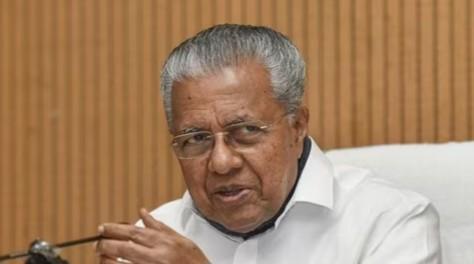
Attack on Federalism: Kerala CM on Bills to Remove Jailed PM, CMs
The recent Constitution (130th Amendment) Bill, 2025, tabled in the Parliament, has sparked widespread outrage and concern among politicians and citizens alike. Kerala Chief Minister, Pinarayi Vijayan, has been vocal about the Bill, terming it a “blatant attack on federalism and the rights of states.” In a scathing rebuke, Vijayan has accused the government of attempting to destabilize non-BJP governments by weaponizing central agencies and jailing opponents on false charges.
The Bill, if passed, would grant the Centre the power to remove the Prime Minister, Chief Ministers, and Ministers who are arrested or detained for at least 30 days. Vijayan’s concerns are echoed by many experts and political leaders who believe that this move is a direct assault on the principles of federalism and the autonomy of states.
Federalism, in essence, is a system of government that divides power between the central government and the regional governments. It is designed to ensure that power is distributed evenly and that each level of government has its own sphere of influence. In a federal system, the central government has limited powers, and the regional governments have a significant degree of autonomy.
The Constitution (130th Amendment) Bill, 2025, seeks to undermine this delicate balance of power. By granting the Centre the power to remove state leaders, the Bill would effectively enable the central government to dictate the fate of state governments. This would be a clear violation of the principles of federalism and would give the Centre an unprecedented level of control over the states.
Vijayan has argued that the Bill is a tool to silence opposition voices and to undermine the democratic process. He has pointed out that the government is using central agencies to harass and intimidate opposition leaders, and that the Bill would provide a legal cover for these actions.
The Kerala CM’s concerns are not unfounded. There have been numerous instances in the recent past where central agencies have been used to target opposition leaders and activists. The Enforcement Directorate (ED), the Central Bureau of Investigation (CBI), and other agencies have been accused of being used as political instruments to silence dissenting voices.
The Bill has also been criticized for its potential to undermine the rule of law. By allowing the Centre to remove state leaders who are arrested or detained for at least 30 days, the Bill would effectively give the Centre the power to dictate the fate of individuals who are merely exercising their democratic rights.
The Bill has been seen as a clear attempt to intimidate and silence opposition voices. It is a classic example of how the government is using its powers to undermine the democratic process and to stifle dissent.
The Constitution (130th Amendment) Bill, 2025, is a blatant attack on federalism and the rights of states. It is a tool to silence opposition voices and to undermine the democratic process. The Bill is a clear violation of the principles of federalism and would give the Centre an unprecedented level of control over the states.
As Vijayan has pointed out, the Bill is a threat to the very fabric of our democracy. It is a tool to silence opposition voices and to undermine the democratic process. The Bill is a clear attack on federalism and the rights of states, and it must be opposed by all those who believe in the principles of democracy and federalism.






